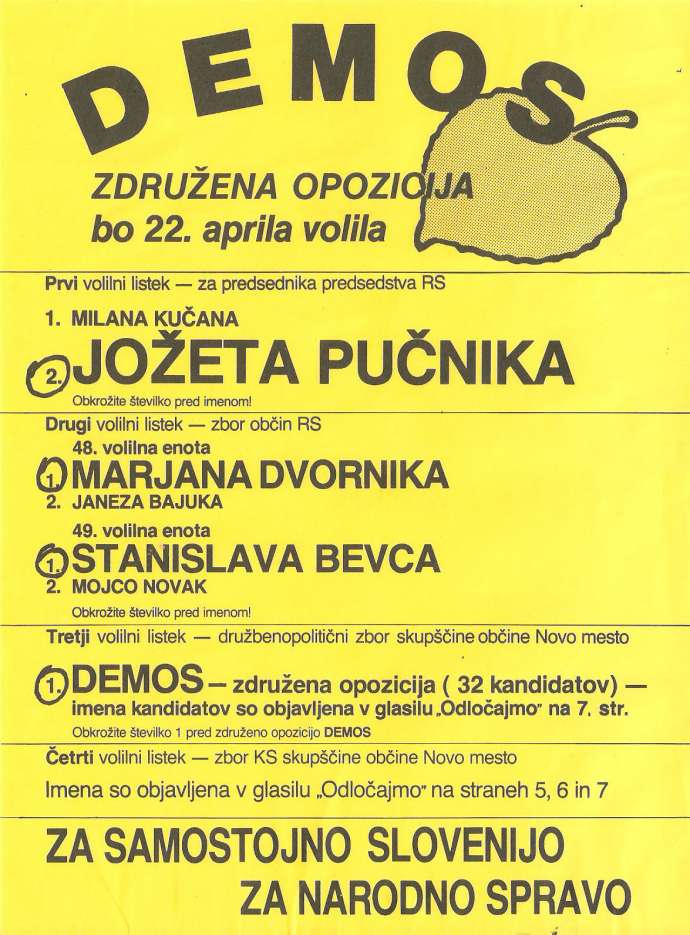In 1989 DEMOS, or the Democratic Opposition of Slovenia (Demokratična opozicija Slovenije), was established, a coalition of democratically elected parties, which won the first democratic elections since 1945 and carried out the Slovenian independence project.
In 1980 the dictator of the Socialist Yugoslav federation Josip Broz-Tito died, and the economic, nationalistic and political tensions in the country started to grow.
In the Socialist Republic of Slovenia the first political party, Slovenian Farmers’ Association (Slovenska kmčka zveza), was established in 1988, and several more followed in 1989, as part of the democratic movement challenging the one-party political system.
Slovenian National Assembly passed several constitutional amendments in September 1989, which among other freedoms granted the rights of national self-determination and democratisation of Slovenian political system. In December the Assembly then first passed a law on political associations, setting the legal grounds for establishment of political parties (before this they had to be registered as associations or societies) and then called the parliamentary elections for April 8, 1990.
Several of the newly established parties, including the Slovenian Farmer’s Association, Slovenian Democratic Union, Slovenian Social Democratic Union and the Slovenian Christian Democrats signed a cooperation agreement, forming the DEMOS coalition, which won with 54.8 % of the vote in 1990, beating the parties which emerged from the crumbling Communist Party organisations.
DEMOS then formed the first democratically elected Slovenian government since 1945, which successfully carried out the referendum on independence on December 23, 1990, when 88.2% of all voters favoured Slovenia breaking away from Yugoslavia, and then June 25, 1991, the National Assembly on passed the declaration of independence.
The DEMOS government fell in 1992 due to disagreements with regard to changes in economic system, most notably, the question of how the privatisation of public companies should take place, a question then addressed by the second democratically elected government of Janez Drnovšek.







